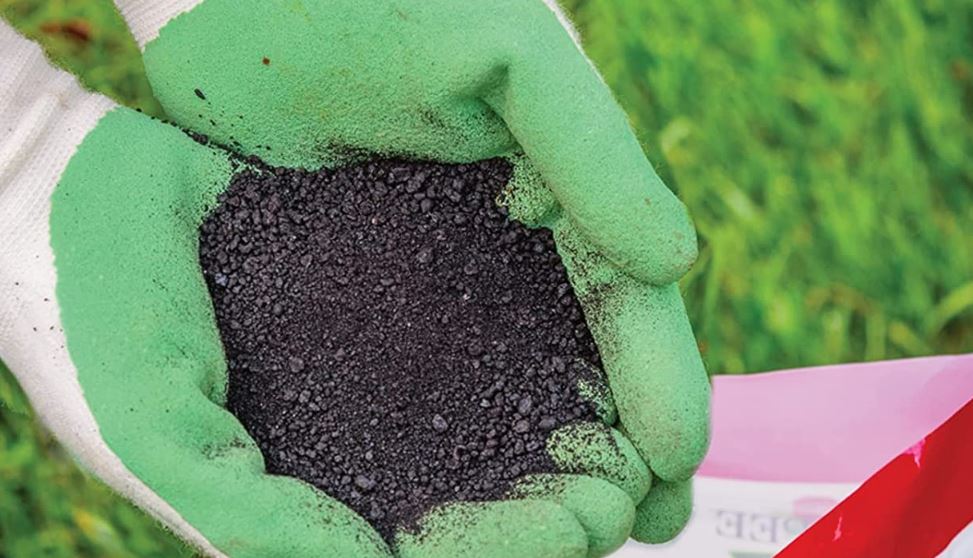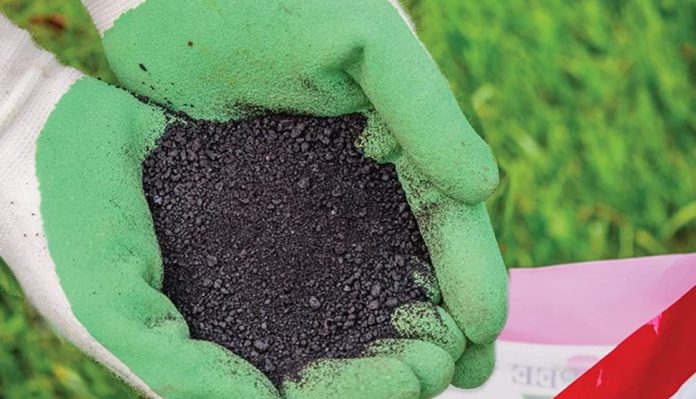There is no doubt that these days, you have a lot of options when it comes to lawn fertilizers. But they can be categorized into two major ones.
They are the organic and the non-organic fertilizers. Finding out the differences between organic and non-organic lawn fertilizers can be a serious headache if you are a first time lawn owner.

To ease your job, we’ve put together this guide where we are going to discuss the differences between organic and non-organic lawn fertilizers, why it is important to know the differences between these two lawn fertilizers and much more.
So without any delay, let’s jump into it!
Why it is Important to Know about the Differences between Organic and Non-organic Fertilizers?
Before we look at the differences between organic and non-organic fertilizers, you need to understand why it is important. Here’s the reason for that.
Some grass types can take in both organic and non-organic fertilizers. But certain grass types will only take in organic fertilizers.
When you feed such grass with non-organic fertilizer, you’ll experience lawn burn pretty quickly.
Having said that, here’s why you need to know the differences of organic and non-organic lawn fertilizers.
- When you know the differences, you’ll be able to feed your grass according to its nutrient needs.
- You will be able to assess which fertilizer type works with both your soil and grass effectively and feed that consistently.
Check also:
- Burpee Organic Blood Meal Fertilizer Complete Review
- How to Develop a Lawn Fertilizer Schedule? A Detailed Overview
Differences between Organic vs Non organic Lawn Fertilizers
Whether you are a firm believer of using organic fertilizing for your lawn, or you are okay with chemical fertilizing or if you are confused about which type of lawn fertilizer to go with, then read the following comparison sections carefully. You will find practical information and you can base your decision accordingly on the type of fertilizer you need to use in your lawn.
Advantages of Organic Lawn Fertilizers
- Organic fertilizers are really good for both your soil and grass: The organic lawn fertilizers will provide organic matters that are critical to the growth of micro organisms such as bacteria and fungi. The growth of microbes is the key factor for creating fertile soil.
- Slow and steady release of essential nutrients: the organic lawn fertilizers are known for releasing essential nutrients at a slow and steady pace. This actually enables both grass and soil to make use of all nutrients efficiently. With this fertilizer type, there won’t be any danger of over concentration of one particular nutrient.
- Provides essential minerals to the soil and the grass: This fertilizer type is full of essential minerals and it distributes them equally throughout the soil. Therefore, the grass will get balanced nutrition at all times.
- Your lawn won’t experience burn: The organic fertilizers are safe to use in your lawn as it won’t burn it. Due to salt concentration, it’ll make your soil fertile for a long time and the grass will grow strong and healthy.
- Organic fertilizers last for a long time in the soil: It won’t leach out and integrates strongly together with the soil particles. The biggest benefit from this is that the roots of your grass will have consistent access to it.
- Don’t have to apply multiple times a year: When you use organic fertilizers and you get a healthy soil condition, you don’t have to apply multiple times and work extra hard to maintain it.
- Doesn’t over-stimulate the growth: if you use organic fertilizer, it won’t stimulate the growth to excess levels and therefore, your lawn is easy to maintain.
- You’ll get stronger and healthier grass: The usage of organic fertilizers helps the grass to significantly resist disease and insect attacks.
- Won’t cause environmental damage: Organic fertilizers won’t build up unwanted and harmful residue and create pollution due to soil irrigation.
- Encourages life growth in the soil: The microbes present in the soil will convert the organic matter into required nutrients that are helpful to the grass. So the life formation in the soil is significant and healthy.
Disadvantages of Organic Fertilizers
- Nutrients will get released slowly: if you have a cooler soil in your area, then the organic lawn fertilizer isn’t an ideal one for you. Because the soil is cooler, it’ll take a lot longer to release nutrients than usual.
- It solely depends on micro organisms in the soil: The organic material in the organic fertilizer will only be broken down by micro organisms found in the soil. If you have a soil that is depleted of micro organisms, then it’ll take much longer time to produce results.
- Costly: almost all organic lawn fertilizers are pricy.
Advantages of Chemical Lawn Fertilizers
- Available everywhere: It is the common form used in most lawns, so chemical fertilizers are available everywhere.
- Variety of formulas used: The manufacturers of the chemical lawn fertilizers use various formulations to differentiate elements in order to produce variety of blenders for different seasons.
- Gives you faster results: you will be able to see the results within one or two weeks if the formula used is the right one for the season.
- Budget friendly: unlike the organic fertilizers, chemical ones are affordably priced. Except the quality blends that have slow and controlled release, chemical lawn fertilizers are pocket friendly.
- Easy to apply: There will be clear instructions given and you can use a lawn spreader to apply. This saves a lot of time.
- Available in multiple forms: pellets, granules, liquid, tablets, spikes, and slow release are some of the forms available in chemical lawn fertilizers.
Disadvantages of Chemical Lawn Fertilizers
- Most non-organic lawn fertilizers are liquid in nature: non-organic fertilizers in most cases are water soluble. Because the water releases the nutrients, there is a high chance that the fertilizer could leach out of the soil and therefore the grass is unable to access the required nutrients.
- The lifespan and the stability of the fertilizer are shorter: if you use a controlled release form of the non-organic fertilizer, then it’ll stay in the soil for a long time.
- Doesn’t improve the fertility of the soil: The synthetic elements used in the non-organic fertilizer don’t do anything at all to improve the fertility of the soil. In fact, it slowly degrades the soil quality.
- Excess growth leads to more work: in certain lawn fertilizers, the grass grows excessively which leads to more mowing and pruning and causes unnecessary stress on roots.
Check also:
- What Kind of Fertilizer Do You Need for Your Lawn? A Detailed Guide
- Top 10 Lawn Fertilizer (Review & Buyer’s Guide)
Conclusion
Our guide about the differences between organic and non-organic lawn fertilizers would have provided you a clear roadmap on which one is the best for both your soil and the grass. Always understand the climate of your area, the type of grass you are dealing with and your requirements before going for a particular lawn fertilizer.
Want to add your thoughts about this guide? Right away in the comments section below!
FAQs on Organic Vs Non-organic Fertilizers
What are some examples of organic lawn fertilizers?
Some of the organic lawn fertilizers include compost, compost tea, herbivore manure, fish and seaweed emulsions, and vermicompost.
What are the types of non-organic lawn fertilizers?
The general types you see with non-organic fertilizers include single nutrient and multi-nutrient ones. You will also see slow release non-organic lawn fertilizers in the market. They don’t cause damage to the grass and releases nutrients slowly.










































